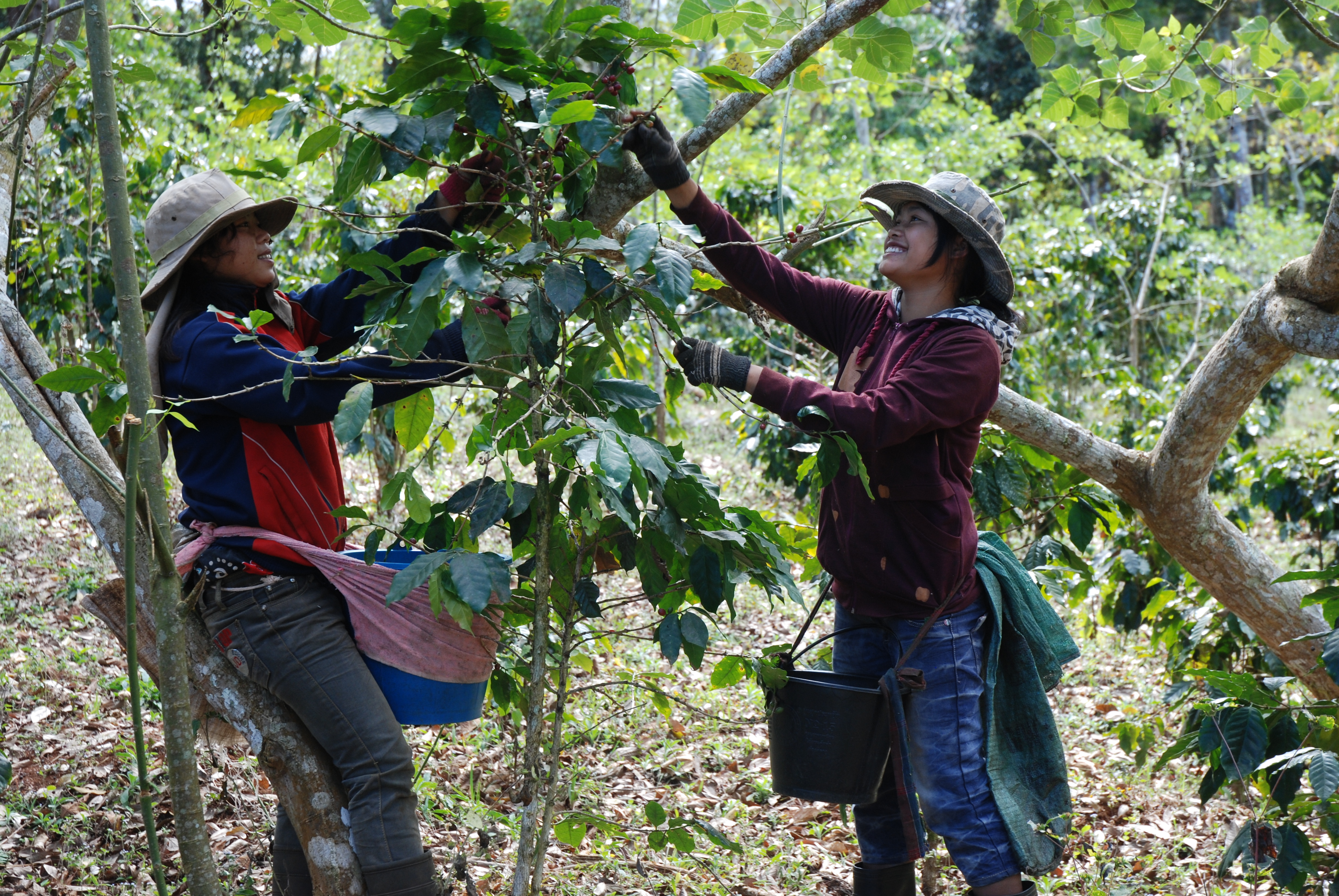I do believe that terroir has a large effect on coffee’s flavor, we have tasted different coffees from different regions around the world and also from different roasting companies and they all have very distinct flavor profiles. It’s amazing how many different flavors, ranging from raspberries to black tea, can be expressed in coffee. These flavors come out using different combinations of variations in the roasting, processing, and growing methods, which I all consider to be part of the terroir.
An ideal coffee production system created using a permacultural design lens

By Thomas Schoch [GFDL (http://www.gnu.org/copyleft/fdl.html) or CC BY-SA 3.0 (http://creativecommons.org/licenses/by-sa/3.0)], via Wikimedia Commons
In order for coffee to be a sustainable crop it must be grown in a food forest environment because it has been shown that shade grown coffee helps to foster a stronger local ecosystem than monocrop coffee and it also may help farmers adapt to climate change faster. (Souza et al. 2011, 179)
Among the benefits of a coffee based agroforestry system is “greater mycorrhizal incidence at deeper soil layers” which means that phosphorous in the soil would be much more readily available to the coffea plants than in a monocrop food system. (Cardoso et al. 2003, 33)
I also think that the coffee roaster should buy all the coffee beans from a single coffee producer rather than skim just the best beans off the top. I think that refusing to buy anything but the best puts an unfair burden on the farmers who are typically in a very low economic class. It would be preferable for a roaster to promise to buy all the beans from a farm and work with the farmers to produce the best possible coffee beans.
